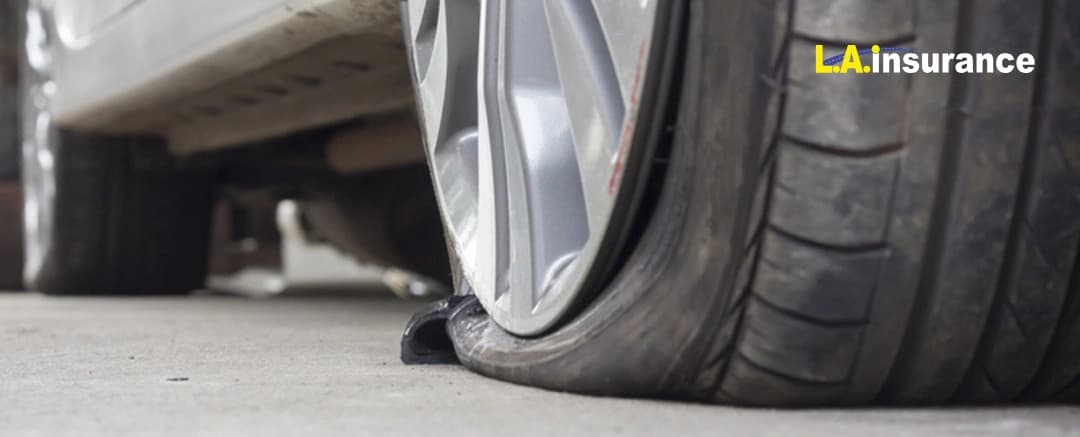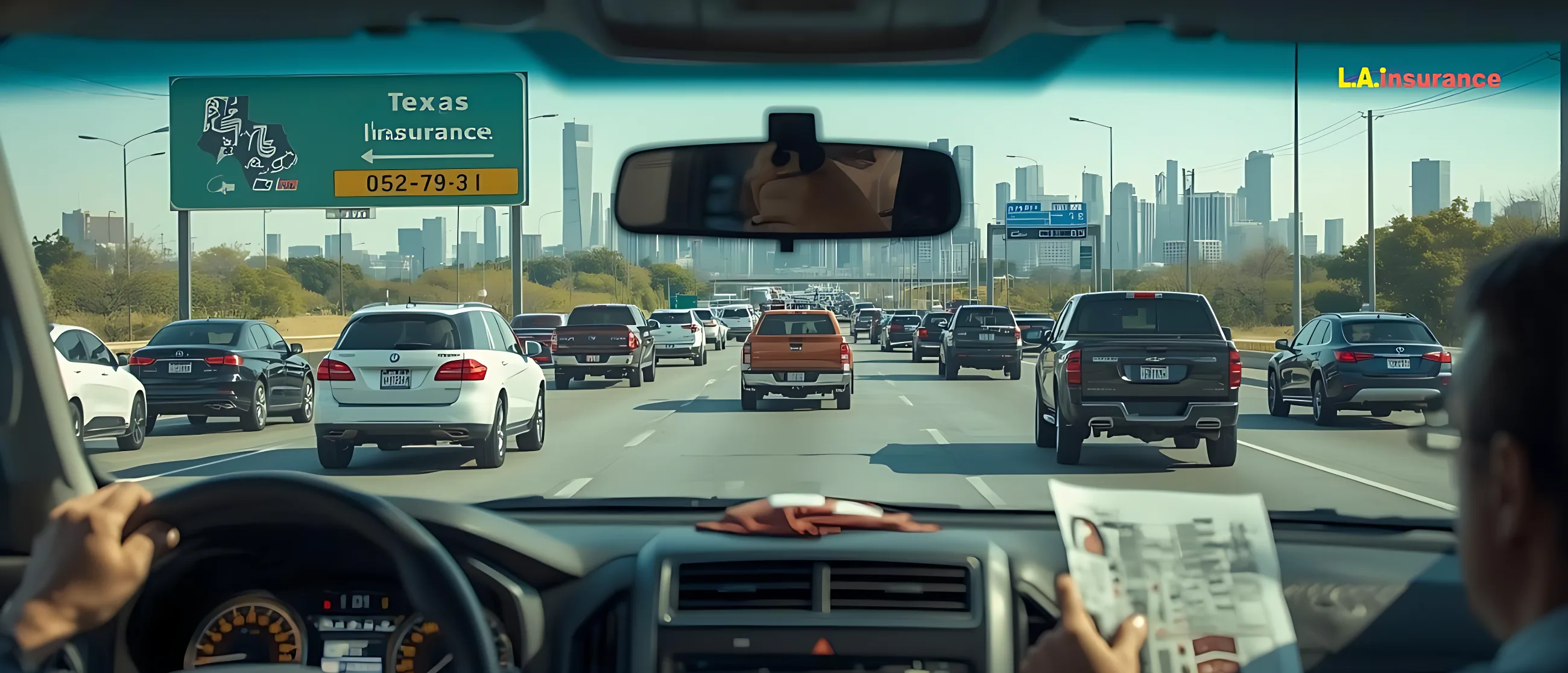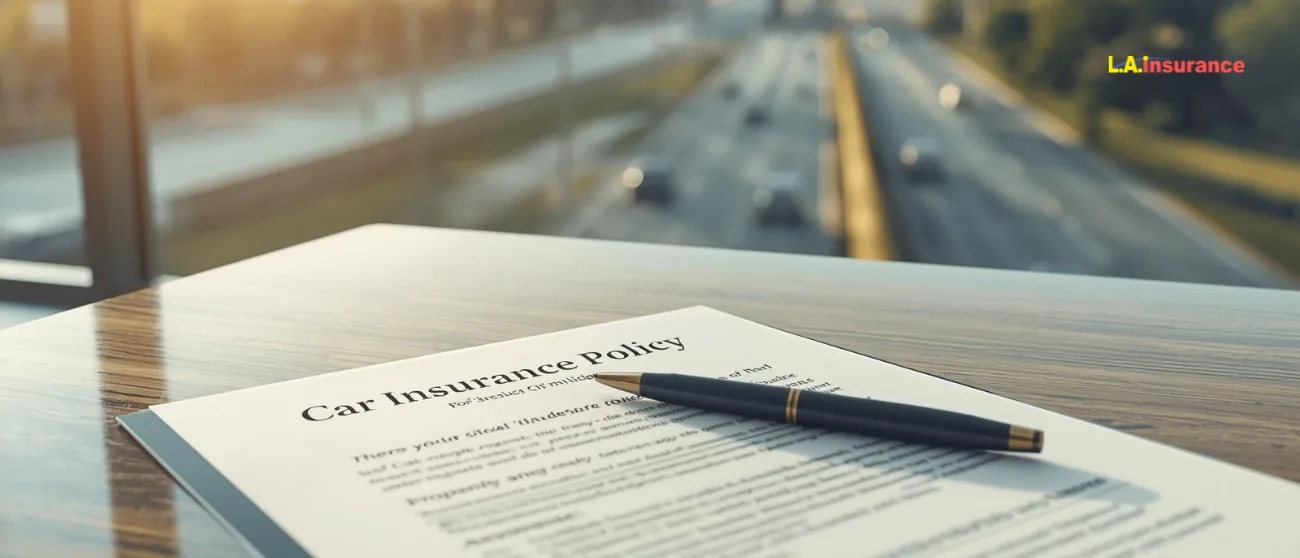
Publish Date: 06-04-2025
Auto Insurance
Last Updated: 24-04-2025
Does Car Insurance Cover Flat Tires
Your tire can go flat for many reasons such as running over a nail, hitting a pothole, a worn-out tread, or even normal wear and tear. A damaged valve stem can slowly leak air, while extreme temperatures can weaken your wheel over time. At high speed, a flat tire isn’t just an inconvenience, it’s dangerous. That’s why you should always have a spare tire, tire repair kit, or roadside assistance. But what if you need a replacement? Will car insurance cover flat tires? The answer depends on how your tires have been damaged and what insurance policy you’re carrying.
Does Insurance Cover Tire Damage, Flat Tire, or Slashed Tire?
The answer is yes. You will get covered for flat tires, slashed tires, and any kind of tire damage. But that will depend on how the tire has been damaged and what types of car insurance coverage you have.
If the flat tire is the result of regular wear and tear, or poor maintenance, you won’t be covered. However, if the tires get damaged by vandals or get stolen, your auto insurance will cover it, but you have to have comprehensive car insurance. Having liability-only insurance isn’t enough for flat tire coverage. Besides, if your tires get damaged after a car accident or hitting a stationary object like a curb or a tree, collision insurance will cover the cost of repairing or replacing your tires.
When Does Comprehensive Car Insurance Cover Tire Damage?
If your car tires were slashed or stolen, comprehensive car insurance will typically help you with the repair or replacement cost. For example: Vandal slashes your tires while your vehicle is parked. If you have comprehensive coverage, you can file a claim to replace them. Besides, if your vehicle’s tires were stolen by a thief, your comprehensive auto insurance will cover it. In such a case, you’ll need to file a police report before making a claim.
Here are the situations when flat tires are covered by comprehensive insurance:
- Someone deliberately slashes your tires.
- Your wheels or tires are stolen from your car.
- A fallen tree or hailstorm damages your tires.
- A garage fire burns your tires beyond repairs.
- A deer collision wrecked your tires.
When Does Collision Insurance Cover Flat Tires or Tire Damage?
If your tire was damaged in a car accident, your collision insurance may cover the cost of repair or replacement. For example, you hit a deep pothole on the highway that damaged your wheel and flattened your tire. If you have collision insurance, your insurance company will cover the repairs.
Scenarios when collision insurance covers tire damage including flat tires:
- You hit a deep pothole, blowing out your tire.
- A collision with another vehicle damages your tires.
- You crash into a curb, bending your wheel and shredding your tire.
- You run over a road debris (e.g., a large metal object).
- You lose control and crash into a barrier/fence that damages your tires.
If you have full coverage car insurance, which is a combination of liability auto insurance, collision insurance, and comprehensive insurance, you will get similar coverage for tire-related damages. If your tires are stolen, slashed, or flattened in an accident, you will be covered under a full coverage insurance policy. Get an affordable full coverage auto insurance from L.A. Insurance. Find an agent or contact us to discuss whether your flat tires are covered.
Types of Tire Damage That Aren’t Covered by Car Insurance
- Wear and Tear: Naturally worn-out tires from frequent driving.
- Aging Tires: Tires past their recommended lifespan, losing grip or structure.
- Improper Inflation: Damage caused by underinflated or overinflated tires.
- Neglect or Lack of Maintenance: Failing to rotate or align tires, leading to uneven wear.
- Manufacturer Defects: Faulty tires that should be covered by a warranty, not insurance.
- Slow Leaks: Gradual air loss due to minor tire punctures or valve stem issues.
- Blowouts from Overuse: Tires that burst due to prolonged use past their safe limit.
- Tire Damage from Off-Roading: Driving on rough terrain without proper tire protection.
- Track or Racing Damage: Tires worn or damaged from high-speed racing or stunt driving.
Does Roadside Assistance Cover Flat Tires?
Roadside Assistance is an insurance add-on that does not cover flat tire repairs, the cost of new tires, or any tire-related damage. However, it can be really useful if you get stuck with a flat tire in the middle of nowhere. It does help you get back on the road quickly.
If you have a flat tire resulting from a pothole, a nail, or just bad luck, roadside assistance can:
- Send a professional to install your spare tire.
- Tow your vehicle to the nearest repair shop or tire center if you don’t have a spare tire.
- Help arrange transportation if all tires are slashed/stolen/flattened.
- Offer a jump start or fuel delivery if your vehicle has additional issues.
- Provide mobile app support to locate repair services.
Also Learn: Does Full Coverage Car Insurance Cover Towing?
Does Car Insurance Offer Tire Protection Insurance?
A flat tire can ruin your day. Unfortunately, car insurance doesn’t offer specialized tire protection insurance or a tire warranty. So, you’ll need to look elsewhere if you want full tire protection. Tire dealers offer a warranty or tire protection plan. They usually cover:
- Road hazards like nails, glass, or debris.
- Tire replacement due to manufacturing defects.
- Towing or repairs if your tire fails unexpectedly.
Here’s a guide to purchasing tires.
What I Need to Claim for Flat Tires or Tire Damage?
So, you have already understood how car insurance can help with flat tires. If your tires are damaged and fall under a specific auto insurance policy, such as comprehensive or collision insurance, you can file a claim for tire repair or replacement. However, you’ll need proper documentation to prove the damage and qualify for reimbursement.
In case your tire is damaged from an accident, here’s what you need to file a claim:
- Insurance policy details
- Accident report/ police report
- Photos of the damage
- Repair estimates
- Witness statements if anyone saw the accident.
For slashed tire or theft, you might need the following to file a claim:
- Police report is required for vandalism or stolen tires
- Photos of the damage (e.g., close-up shots of the slashed tires or missing wheels)
- Proof of ownership
- Security footage (if available)
For pothole damage or road debris damage:
- Location details (exact zip code and street where the pothole or debris caused the damage)
- Photos of pothole or debris (if available)
- Towing or repair receipts
Will My Insurance Premium Increase If I Claim for Any Tire Damage?
Filing a claim typically raises your insurance rate by 20% to 40%. However, this could be higher depending on the type of the claim. For example, if you file a claim for a slashed tire or stolen wheels, which fall under comprehensive coverage, your insurance premium is less likely to go up. But it still may affect your premium in the future depending on the situation and insurance company. If the insurance company finds that this happens due to your negligence, or poor security maintenance, they may raise your premiums. But it’s hard to say how much they will raise the rate.
On the other hand, if your tires are damaged or flattened in an accident or collision, you will surely face higher premiums. In case of accidents or collision, insurers see you as a higher risk, which will eventually lead to higher car insurance rates. In fact, your car insurance rate could go up by 42% in case of an accident when you’re at fault.
We would also suggest here not to file a tire-related claim if the cost to replace your tire is lower than your deductible. As you know, it’s not worthy!
Ensure the Safety of Your Tires
Your tires carry all the weight of your vehicle. So, for you and your vehicle safety, you can’t just neglect them. A fragile tire could lead to serious accidents. According to National Highway Traffic Safety Administration (NHTSA) reports, 562 people died due to tire-related crashes in 2022 alone. So, it’s crucial to replace your tire when the time comes. NHTSA says, manufacturers recommend replacing your tire every 6 to 10 years regardless of treadwear.
Proper maintenance of your tires could also ensure safety and reduce risk. Here’s what you can do to ensure the safety of your tires:
- Check tire pressure regularly. Underinflated tires increase fuel consumption and wear faster. NHTSA recommends checking pressure monthly to prevent blowouts.
- Rotate and align your tires. Because uneven wear and tear affect handling. According to Consumer Reports, you should rotate tires every 5,000 to 8,000 miles for even wear.
- Replace tires when needed. As we mentioned, according to NHTSA tires should be replaced every six to ten years or when tread depth is below 2/32 of an inch (use the penny test).
- Avoid overloading vehicles. Too much weight stresses your tires and increases the failure risks. Always follow your vehicle’s manufacturer load limits.
- Watch for tire damage. Check for bulges, cracks, or embedded objects. Any damage could weaken your tires and make them susceptible to flats or blowouts.
- In case you need to change a tire, do it correctly. Before you do so, learn how to change your tire properly.
Does Car Insurance Cover Flat Tires: The Bottom Line
To sum up, car insurance generally won’t cover a flat tire caused by wear and tear, but it may help in specific cases. If a pothole or accident damages your tire, collision insurance could cover it. For vandalism or theft, comprehensive coverage applies. Roadside assistance add-on insurance could help you with flat tires by providing a towing facility or spare tire installation. Besides, the manufacturer warranty and their tire protection plan can help you as well.
Read more articles on various car insurance coverages that matter to you:
- Will My Insurance Cover Car Wash Damage?
- Does Insurance Cover Auto Repairs?
- Does Car Insurance Cover Car Battery?
- Does Car Insurance Cover Car Seats After an Accident?
- Does Car Insurance Cover Water Damage from Rain
Frequently Asked Questions (FAQs)
Does Full Coverage Auto Insurance Cover Flat Tires?
Yes, it does if it’s slashed by vandals, stolen, or damaged in an accident, pothole, collisions, or road debris. Full coverage includes comprehensive and collision insurance, and all these situations are covered under these two coverages. However, it won’t cover wear and tear or routine maintenance issues.
Does Insurance Cover Tire Blowout?
Only in certain circumstances. If a blowout results from a collision or road debris, collision insurance may cover the damage. If it causes an accident, your liability auto insurance may cover property damage or injuries. As always, routine wear and tear isn’t covered.
Does Car Insurance Cover Slashed or Stolen Tires?
Yes. If you have comprehensive coverage. This protects against vandalism and theft. You may need to file a police report before your insurance company processes the claim. Due to the increased number of insurance fraud, insurers require evidence to prove the legitimacy of your claim. Before you file a claim for slashed/stolen tires, check your comprehensive deductible amount. If the repair/replace cost is less than your deductible, it’s not worth filing a claim.
Does Car Insurance Cover Tire Damage from Regular Wear and Tear?
The short answer is no. Tires actually degrade over time and insurance coverage doesn’t include routine maintenance. If your tire wears out, you’ll need to replace it at your own expense. A warranty or tire protection plan may help with replacement costs.
Do I Need Custom Parts and Equipment Coverage for Tire Damage?
If you have custom wheels or rims, yes. Standard auto insurance may not cover aftermarket modifications. Custom Parts and Equipment Coverage (CPE) ensures that high-value wheels are protected in case of accidents, vandalism, or theft.
Will Auto Insurance Cover My Vehicle’s Wheels?
The answer is yes if the damage is from a covered event such as car accident, theft, collision, or vandalism. If you carry collision auto insurance, it will pay for damages caused by potholes or accidents. And for carrying comprehensive insurance, you’ll get covered for theft, and vandalism.
Does Car Insurance Pay for Dented Rims?
Yes, but only if you have collision or comprehensive coverage. Collision insurance covers dented rims from potholes or accidents, and comprehensive insurance applies if they were stolen or vandalized. Routine damage from wear isn’t covered.
How Often Should I Replace My Tires?
According to the National Highway Traffic Safety Administration (NHTSA), tires should be replaced every six to ten years. However, if the tread depth is below 2/32 of an inch, replace them immediately. This will ensure safety and save from accidents.
Does Automobile Insurance Pay for Tire Rotation?
No. Tire rotation is considered routine maintenance and isn’t covered under auto insurance. However, many dealerships and warranty plans offer free tire rotations if you buy tires from them.
Is a Nail in Your Tire Covered by Insurance?
Not usually. A nail in your tire is considered road hazard damage and falls under wear and tear, which insurance policies don’t cover. However, if you hit the nail that results in accidents or collisions, you’ll get covered. Generally, a tire protection plan or roadside assistance might help with repairs.
What is the 3 Tire Rule?
A myth claims insurance companies only cover three slashed tires but not four. This is not true. If you have comprehensive insurance, it will cover any number of slashed tires, as long as you meet the policy requirements.
Editorial Disclaimer
The information provided on this blog is for general informational purposes only and does not constitute professional insurance, legal, or financial advice. Coverage and rates are subject to individual eligibility, underwriting guidelines, and state availability. For specific questions regarding your policy or to get an accurate quote, please contact a licensed L.A. Insurance agent directly. We're an independent agency and not a direct insurance carrier. For more information on how we operate and handle your data, please see our Terms and Conditions and Privacy Policy.
Tag :
Auto insurance
Comercial Auto








